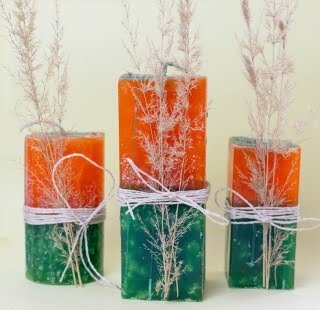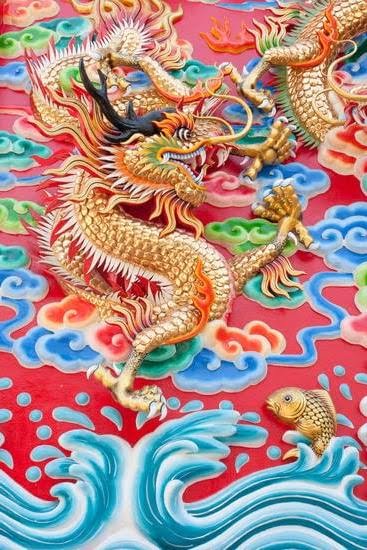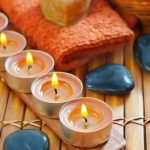Feng Shui, an ancient Chinese practice, has gained popularity in modern times for its ability to create a harmonious living space. When it comes to creating a good feng shui house plan, the principles of this art form can significantly influence the overall energy and balance of a home.
From choosing the right location and orientation to incorporating natural elements and colors, a well-designed feng shui house plan can promote positive energy flow and enhance the well-being of its inhabitants.
Understanding the principles of good feng shui house plans is essential for those looking to create a balanced and harmonious living environment. It involves much more than just arranging furniture or choosing color schemes; rather, it encompasses a holistic approach to creating a space that supports the flow of positive energy while minimizing negative influences.
In this article, we will delve into the importance of feng shui in house planning, explore the fundamental principles behind good feng shui house plans, and provide practical tips for implementing these concepts in your own home. Whether you are designing a new home or seeking ways to improve the energy in your existing space, understanding feng shui can lead to creating a more balanced and nurturing living environment.
Understanding the Principles of Good Feng Shui House Plan
When it comes to creating a good feng shui house plan, it is essential to understand the principles that guide this ancient practice. The main goal of a good feng shui house plan is to promote the flow of positive energy, or chi, throughout the space. This can be achieved through careful consideration of the layout, design, and orientation of the home.
One key principle of a good feng shui house plan is the concept of yin and yang – the balance between opposing forces. In home design, this means creating a harmonious balance between different elements such as light and dark, soft and hard, and vertical and horizontal. For example, a well-designed feng shui house plan will incorporate both natural light and strategically placed lighting to create a balanced atmosphere.
Another important principle to consider in a good feng shui house plan is the five natural elements: wood, fire, earth, metal, and water. Each of these elements carries its own energy and characteristics, and a well-designed feng shui house will incorporate all five in some way to create balance and harmony within the space.
| Principles | Description |
|---|---|
| Yin and Yang | The balance between opposing forces such as light and dark |
| Natural Elements | Incorporating wood, fire, earth, metal, and water for balance within the space |
Choosing the Right Location and Orientation for Your Home
When it comes to creating a good feng shui house plan, one of the most important considerations is the location and orientation of your home. The ancient practice of feng shui emphasizes the significance of the environment surrounding a property and how it can influence the energy within the home. Here are some key factors to consider when choosing the right location and orientation for your home:
- Landform: Consider the natural surroundings of the property, such as hills, bodies of water, and vegetation. According to feng shui principles, these elements can impact the flow of energy (qi) around your home.
- Sunlight: Pay attention to the path of sunlight throughout the day. A good feng shui house plan will have an optimal balance of sunlight in different areas of the home, promoting a healthy flow of energy.
- Wind and Airflow: The direction and quality of airflow around your home can also affect its feng shui. Ensure that windows and doors are positioned to allow for fresh air circulation and positive qi.
In addition to these natural elements, it is essential to consider man-made features such as neighboring buildings, roads, and other structures that may impact the energy flow around your home. By carefully evaluating these factors, you can create a good feng shui house plan that maximizes positive energy while minimizing any potential sources of negative influence.
Ultimately, choosing the right location and orientation for your home sets a strong foundation for good feng shui. It is not only about finding a beautiful setting but also about creating an environment that supports health, harmony, and prosperity in your living space. With thoughtful consideration and planning, you can ensure that your home aligns with good feng shui principles from its very foundation upward.
Designing a Layout That Promotes Positive Energy Flow
Creating a good feng shui house plan involves designing a layout that promotes positive energy flow throughout the home. One of the key principles of good feng shui house planning is the concept of open and unobstructed pathways for energy, also known as chi, to move freely. This can be achieved by ensuring that the layout allows for smooth and meandering pathways without sharp turns or obstacles that impede the flow of chi.
In addition to this, it is important to ensure that there is an abundance of natural light throughout the home, as natural light is considered a source of positive energy in feng shui. Strategic placement of windows, skylights, and glass doors can help maximize the entry of natural light, thereby promoting a sense of vitality and well-being within the space.
Moreover, incorporating elements such as mirrors and reflective surfaces can further enhance the flow of positive energy by reflecting and amplifying light throughout the home.
When designing a layout that promotes positive energy flow in a good feng shui house plan, it is essential to consider the arrangement and organization of rooms in relation to one another. The positioning of rooms should allow for a harmonious and balanced distribution of energy throughout the home.
For instance, spaces for rest and relaxation, such as bedrooms and meditation areas, should be located away from high traffic areas to ensure tranquility and peace. This deliberate arrangement contributes to creating an environment that supports overall well-being and harmony within the household.
| Key Principles | Aspects |
|---|---|
| Open pathways for energy | Smooth movement of chi |
| Natural Light | Maximizing entry of natural light through strategic placement of windows, skylights, and glass doors |
| Room Arrangement | Deliberate positioning to support overall well-being and harmony within the household. |
Incorporating Natural Elements and Colors for Balance and Harmony
When it comes to creating a good feng shui house plan, it’s essential to incorporate natural elements and colors that promote balance and harmony. According to feng shui principles, the use of natural elements such as wood, water, metal, fire, and earth can help create a sense of equilibrium in the home. Additionally, choosing the right colors based on the five feng shui elements can also contribute to a harmonious living environment.
Here are some key ways to incorporate natural elements and colors into your home design:
- Use wood furniture or decor items to bring in the energy of growth and vitality.
- Introduce water features such as fountains or aquariums to enhance the flow of chi (positive energy) in your space.
- Incorporate metal elements through fixtures, artwork, or accessories to promote clarity and focus.
- Add touches of fire element with candles or lighting to bring warmth and passion into your home.
- Bring in earthy tones such as browns, yellows, or terracotta for stability and nourishment.
By consciously including these natural elements and colors in your home design, you can create a good feng shui house plan that promotes balance and harmony.
Remember that the specific placement and combination of these elements will depend on the bagua map of your home. The bagua map divides your space into nine areas that correspond to different aspects of life such as wealth, relationships, career, fame, etc. By applying the principles of feng shui along with natural elements and colors according to the bagua map, you can create a living environment that supports overall well-being and positive energy flow throughout your home.
Furniture Arrangement and Space Organization for Optimum Feng Shui
When it comes to creating a good feng shui house plan, furniture arrangement and space organization play a crucial role in promoting positive energy flow throughout the home. The way you position your furniture and organize your living spaces can greatly impact the overall harmony and balance within your living environment.
Arranging Furniture According to Energy Flow
In feng shui, the proper arrangement of furniture is essential for promoting the smooth and harmonious flow of energy, known as Chi. When arranging furniture, it’s important to consider the pathways through which energy flows in your home.
Avoid blocking energy flow by placing furniture directly in front of doors or in high-traffic areas. Positioning furniture in a way that allows for easy movement and promotes a sense of openness can help create a more balanced and harmonious living space.
Creating Functional Spaces With Clear Intentions
Each area of your home should serve a specific purpose, whether it’s for relaxation, work, or socializing. By clearly defining the purpose of each space and organizing it accordingly, you can create functional areas that support the activities and intentions associated with them. For example, creating a cozy reading nook with comfortable seating and good lighting promotes relaxation and quiet contemplation.
Decluttering for Clarity and Energy Flow
Clutter creates stagnant energy that can hinder the positive flow of chi throughout your home. To optimize feng shui, it’s important to declutter your living spaces regularly. Keep things organized and tidy to allow for clear pathways for energy to circulate freely. By eliminating clutter, you not only improve the visual appeal of your home but also promote a sense of calm and tranquility within your living environment.
By paying attention to the arrangement of furniture and the organization of space within your home, you can create an optimal feng shui environment that supports positive energy flow and overall harmony. Incorporating these principles into your house plan can lead to a more balanced and harmonious living space that promotes well-being and prosperity.
Implementing Feng Shui Cures and Enhancements in Your Home Design
Incorporating Feng Shui cures and enhancements in your home design is essential to creating a harmonious and balanced living environment. These cures and enhancements are based on the principles of Feng Shui, which focus on promoting positive energy flow and maintaining a sense of balance and harmony within your living space. By understanding the different aspects of Feng Shui cures and enhancements, you can optimize the energy in your home and create a nurturing atmosphere for yourself and your family.
One important aspect of implementing Feng Shui cures and enhancements is to clear clutter from your living space. Clutter can block the flow of positive energy, or chi, in your home. By decluttering your space, you can allow for a smoother movement of chi throughout your home. This simple yet effective cure can make a significant difference in creating good Feng Shui in your house plan.
Another key aspect of implementing Feng Shui cures is to incorporate natural elements into your home design. Natural elements such as wood, water, metal, fire, and earth are believed to bring balance and harmony to a space according to the principles of Feng Shui.
For example, adding indoor plants or incorporating wooden furniture can introduce these natural elements into your home, promoting a sense of calmness and tranquility. Additionally, integrating soothing colors inspired by nature such as blues for water or greens for wood can further enhance the positive energy flow throughout your living space.
By implementing these simple yet effective Feng Shui cures and enhancements into your home design, you can create a nurturing environment that promotes positive energy flow as per good feng shui house plan It’s important to remember that every home is unique, so it’s essential to understand how these principles can be adapted to suit individual needs.
With careful attention to detail and an understanding of the principles of good Fung Shusi house plan, you can create a sanctuary within your own living space that promotes well-being for you and your family.
Case Studies
Incorporating Feng Shui principles into the design and layout of your home can have a significant impact on the overall energy flow and harmony within the space. Real-life examples of good feng shui house plans demonstrate how these ancient principles can be successfully applied to create a balanced and harmonious living environment.
The Importance of Layout and Flow
A good feng shui house plan takes into consideration the overall layout and flow of the home. For example, in one case study, a family re-designed their home to incorporate an open floor plan that allowed for better energy flow throughout the space. By removing unnecessary walls and barriers, they were able to create a more conducive environment for positive chi.
Location and Orientation
Another key aspect of good feng shui house plans is the location and orientation of the home. In a real-life example, a couple chose a plot of land with a clear view of the sunrise, as this was believed to bring in positive energy and vitality according to Feng Shui principles. They also made sure to position their main entrance facing south, which is considered auspicious in feng shui.
Natural Elements and Colors
Real-life examples of good feng shui house plans often incorporate natural elements such as wood, water, metal, and earth into the design. One family incorporated a soothing color palette inspired by nature throughout their home, using earthy tones and natural materials to create a sense of balance and harmony. This attention to detail in choosing colors and materials helped promote good energy flow throughout their living spaces.
By studying these real-life examples, homeowners can gain valuable insights into how they can apply feng shui principles to their own homes, creating a harmonious living environment that promotes overall well-being and positive energy flow.
Conclusion
Creating a harmonious and balanced living environment through Feng Shui involves careful planning and consideration of various principles. A good feng shui house plan encompasses not only the layout and design of the home but also its location, orientation, and overall energy flow. By understanding the key principles of Feng Shui and implementing them in your house plan, you can create a space that supports health, happiness, and prosperity.
When choosing the right location for your home, it is important to consider the surrounding landscape and topography. A good feng shui house plan takes into account the natural elements such as water, mountains, and vegetation to maximize positive energy flow.
Additionally, the orientation of the home in relation to the sun’s path and prevailing winds can greatly impact its Feng Shui. By aligning your home with these natural forces, you can enhance its overall energy and create a more balanced living environment.
Incorporating natural elements such as wood, metal, water, earth, and fire into your home design is essential for creating good Feng Shui. From choosing the right colors to integrating natural materials like stone or wood, these elements help to promote balance and harmony within your living space.
Furthermore, furniture arrangement and space organization play a crucial role in achieving optimum Feng Shui. By allowing for smooth energy flow throughout your home, you can create a sense of tranquility and well-being that positively impacts all aspects of your life.
Additional Resources and Tips for Implementing Good Feng Shui in Your Home
In conclusion, creating a good feng shui house plan is essential for promoting a harmonious and balanced living environment. By understanding the principles of Feng Shui and incorporating them into your home design, you can optimize the flow of positive energy and promote overall well-being for yourself and your family.
Choosing the right location and orientation for your home is crucial in good feng shui house planning. By considering factors such as natural lighting, landscape features, and proximity to roads or other structures, you can create a supportive environment that enhances the flow of positive energy throughout your home.
Additionally, implementing feng shui cures and enhancements can further enhance the good feng shui house plan. This may include using mirrors to expand space and light, incorporating soothing water features, or adding indoor plants to bring nature indoors. By following these principles and making thoughtful design choices, you can create a home that not only looks beautiful but also supports overall well-being through good feng shui house planning.
Frequently Asked Questions
What Is the Best Feng Shui House Layout?
The best Feng Shui house layout is one that allows for a smooth flow of energy, or chi, throughout the space. This means avoiding cramped and cluttered areas, as well as ensuring that there are no sharp corners or angles pointing towards the house.
How Should a House Be Built According to Feng Shui?
According to Feng Shui principles, a house should be built on a solid foundation with good quality materials and a design that allows for the proper flow of energy. It’s important to consider the orientation of the house and its connection to nature, such as incorporating natural light and ventilation.
What Gives a House Good Feng Shui?
A house has good Feng Shui when it promotes a sense of balance, harmony, and well-being for its occupants. This can be achieved through factors such as proper orientation, a clutter-free environment, natural light, fresh air circulation, and incorporating elements of nature within the space.

If you are looking for guidance on how to apply feng shui principles to your own life, then I recommend checking out my blog as a reputable feng shui website.





